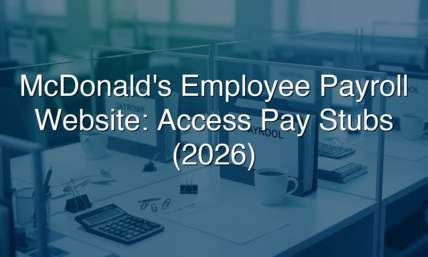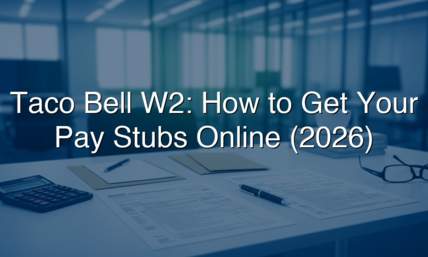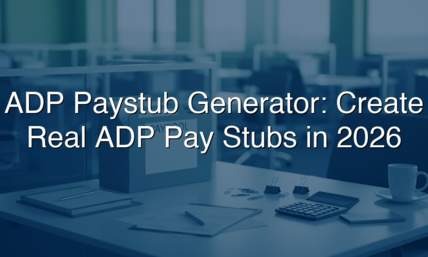How Do You Budget For A Small Business?
According to multiple studies, one of the biggest causes of downfall for small businesses is poor office management and budget. Some business owners don't understand that even though starting a business requires a decent amount of money, the costs and expenses won't just halt once it is up and running. Every entrepreneur must create and maintain a reliable budget - it goes a long way in keeping the finances in check.
Once you decide to immerse yourself in business, you should make peace with the reality that financial fluctuations are inevitable. Therefore, having a poor plan ahead will spell disaster for your finances and the business in general. How, then, do you achieve this sustainable and realistic budget?
Also read: 7 Best Ways To Invest Money Wisely

What Exactly is a Budget?
If you own a small business, you probably know what a budget is - but there are in-depth aspects of a business budget that can make or break your financial success. Partnering with federal institutions is a great way to enhance your reach, build your team, and learn the ropes.
Federal agencies are not as scary as they sound, and a federal budget is almost always larger than those from private sources. Some examples of governmental partnerships include:
The options above are subsets of the United States government. Each has specific concentrations and policies regarding small businesses as well as management and budget. Plus, working with executive office partners ensures you follow regulatory policies regarding the budget.
Also read: 5 Things To Consider When Buying A House
Small Business Administration
The Small Business Administration (SBA) is the first place you should look for federal administration information. They assist small businesses with acquiring their licenses, offer free counselling, and provide resources for federal government contracting. The SBA is the first official government organization you should visit when launching your company.
Furthermore, the SBA also provides disaster and general loans to small businesses and gives business owners access to the federal register. If you foresee needing a lot of guidance, the SBA hires Community Navigators to help new companies function in underrepresented areas.
US General Services Administration
As the name suggests, the US General Services Administration (GSA) takes a more general approach to small businesses but still offers adequate financial help. If you need information on federal regulations for small businesses, the GSA is your best bet.
The GSA is a practical choice if you already have an established business but need extra help with contracts and logistic tools. They have a contract forecast that allows small business owners to look at potential future relationships.
You can also enter your financial information and receive a report on what economic demographic your business falls within.
Also read: Can You Cash a 2-Year-Old Check?

US Office of Personnel Management
Do you need help with hiring, onboarding, and general HR duties? The US Office of Personnel Management (OPM) has a small business program that focuses solely on developing high-quality partnerships with executive agencies. They have a steep federal budget for assisting new and developing institutions.
The OPM collaborates with small businesses by providing Small Business Advocates. The Advocates help ensure that small businesses are the first considerations for federal awards and follow the federal procurement policy. Since the OPM is an HR-heavy government sect, you can trust that sensitive information remains private.
What Makes a Good Budget?
A budget does not have to be complex to serve its purpose - proper financial management is the most essential factor for developing budget proposals. Below are the six critical components of a small business' budget.
Estimated Revenue
The estimated revenue is the amount of money you expect the business to generate from its products and services. Most companies set the earnings based on the previous financial year's income. However, running a startup can use industry averages.
Fixed Expenses
Every business needs some regular and consistent costs. This section includes all the fixed charges that don't fluctuate even when the revenue increases or decreases. Such expenses include insurance, rent, bank fee, salaries, legal service fees, leases, etc.
One-off Costs
These are the expenses incurred outside the usual business operations, such as relocating an office or developing the business's official websites. Some federal agencies may help with these costs.
Variable Expenses
This one was obvious. After the fixed costs, you also have to include expenses that change with changing sales and production. These include raw material and production costs, packaging costs, delivery services, and commissions. Here, you need to indicate how much you will spend on each. Also, it is safe to say that salaries fall under both categories.
Cash Flow
Cash flow is the backbone of a business; it is all the money flowing in and out of your company. Cash flow can either be positive or negative. A positive cash flow is where more money comes in than out, while a negative one is where more money goes out than comes in.
Also read: How to Provide Proof of Income
Profit
How much money do you have left after paying monthly dues, information technology expenses (such as maintaining secure websites), salaries, personnel management costs, and rent?
That's the profit. The good thing about including profit is that you have a clear picture of your business's direction. Profit margins will tell you whether you will achieve your set financial goals.
Budget Calculators
These tools provide a clear indication of your business's stand regarding the budget. They make things easy for you by providing a summary.
Helpful Tips for Creating a Better Budget for Your Small Business
One of the easiest ways to do so is by keeping everything realistic. Don't bite more than you can chew! A good business owner sets future goals based on current capacity and cost principles. Research all the operating costs involved even before you decide to draft the budget.
You can also negotiate with suppliers for deals and discounts before budget development. This tip is essential, especially for businesses that depend on regular and trusted suppliers for their operations. Negotiations will help you lower the purchasing costs and create better relationships with the suppliers.
Lastly, don't forget to incorporate any industry trends and seasonal inconsistencies. Such practices will give you an insight into when the business performs better and when things are slow. Well-executed management and budget plans analyze trends to maximize profits.
You can also apply for grants! Try to search for official government organization grants, as they improve your cash flow - and again, a federal budget is much more significant than private lenders.
Also read: Is Debt Management Important?

Conclusion
A reasonable budget for your business will help you create targets, establish priorities, provide a reference point, and ensure everyone aboard is on the same page. Also, don't just set the budget; stick to it too! Your small business will thrive with federal partnerships, proper office management, and diligence.
While on the subject of your finances it is vital that your pay stubs are also in ‘check’. Our paystub generator will make sure that they are.















